Hello and welcome to Episode 8 of Read Paradise Lost with me, Jane Davis, a podcast and Substack newsletter about my project to read all of Paradise Lost by John Milton, aloud, and with a sometimes word-by-word, sometimes line-by-line discussion. This is one-take recording with no editing, so forgive noise of seagulls, my coughing, or sound of men drilling next door. Rough and ready reading is what you get.
See Episode 1 for an introduction to the project.
Satan calling up his Legions, by William Blake, 1804
This week we’re reading from Book 1 line 271 to line 521, which is a helluva chunk. But I’m going to do it fast, and I’m going to break the reading up a bit as there are a lot of Devils to get through, and if you are reading the first time, you probably don’t want to get stuck in the fiery mire with them for too long. Pass along, over bits you don’t understand, and don’t worry - you’ll get the gist.
In the last episode we saw Satan, newly risen from the lake of fire, resolving to have another go:
to try what may be yet
Regaind in Heav'n, or what more lost in Hell? [ 270 ]
Now the devil nearest to him replies:
So Satan spake, and him Beelzebub
Thus answer'd. Leader of those Armies bright,
Which but th' Omnipotent none could have foyld,
If once they hear that voyce, thir liveliest pledge
Of hope in fears and dangers, heard so oft [ 275 ]
In worst extreams, and on the perilous edge
Of battel when it rag'd, in all assaults
Thir surest signal, they will soon resume
New courage and revive, though now they lye
Groveling and prostrate on yon Lake of Fire, [ 280 ]
As we erewhile, astounded and amaz'd,
No wonder, fall'n such a pernicious highth.
A reader asks ‘what does Satan get from having Beelzebub alongside him?’ Well, he gets the word ‘leader’, and the assurance that his voice can rouse the defeated army. No sooner said by Beelzebub, than done by Satan:
He scarce had ceas't when the superiour Fiend
Was moving toward the shoar; his ponderous shield
Ethereal temper, massy, large and round, [ 285 ]
Behind him cast; the broad circumference
Hung on his shoulders like the Moon, whose Orb
Through Optic Glass the Tuscan Artist views
At Ev'ning from the top of Fesole,
Or in Valdarno, to descry new Lands, [ 290 ]
Rivers or Mountains in her spotty Globe.
His Spear, to equal which the tallest Pine
Hewn on Norwegian hills, to be the Mast
Of some great Ammiral, were but a wand,
He walkt with to support uneasie steps [ 295 ]
Over the burning Marle, not like those steps
On Heavens Azure, and the torrid Clime
Smote on him sore besides, vaulted with Fire;
Nathless he so endur'd, till on the Beach
Of that inflamed Sea, he stood and call'd [ 300 ]
His Legions,
The action-packed Satan takes a continuative tense in ‘the superiour Fiend/Was moving’ - in the previous lines we’ve had a past tense. But now we’re up and moving with him, this epic warrior, admiring his huge shield hanging like the moon behind him. Extraordinarily, Milton now pulls our minds far into the poem’s future with a reference to Galileo:
the Moon, whose Orb
Through Optic Glass the Tuscan Artist views
At Ev'ning from the top of Fesole,
Or in Valdarno, to descry new Lands, [ 290 ]
Rivers or Mountains in her spotty Globe.
Elsewhere, Milton records meeting Galileo on his trip to Italy. Why does Milton bring him in here? Galileo - under house arrest by the (Catholic) Inquisition - had used a powerful telescope to survey the moon; had sought facts which the Catholic Church could not tolerate. Part of Milton’s task in justifying the ways of God to man is to show his readers why or how Catholicism is a fallen religion. Galileo, an old man pursuing truths, couldn’t be farther from Satan, here full of vital and youthful-seeming energy, pursuing an enormous lie.
But we can’t linger here, we must rush on, admiring as we go Satan’s tree-like spear, but noting how each time we are give the epic view, the grand view of Satan, it fails or falls away - the great spear becomes a wand, a thin stick he uses as walking stick as he hobbles over the burning surface.
Engraving by Melchior Lorch, showing the Pope/the Devil carrying a tree 1545
We may marvel at his size, but not admire Satan as he takes:
uneasie steps [ 295 ]
Over the burning Marle, not like those steps
On Heavens Azure, and the torrid Clime
Smote on him sore besides, vaulted with Fire;
Nathless he so endur'd, till on the Beach
Of that inflamed Sea, he stood and call'd [ 300 ]
His Legions, Angel Forms, who lay intrans't
Thick as Autumnal Leaves that strow the Brooks
In Vallombrosa, where th' Etrurian shades
High overarch't imbowr; or scatterd sedge
Afloat, when with fierce Winds Orion arm'd [ 305 ]
Hath vext the Red-Sea Coast, whose waves orethrew
Busiris and his Memphian Chivalry,
While with perfidious hatred they pursu'd
The Sojourners of Goshen, who beheld
From the safe shore thir floating Carkases [ 310 ]
And broken Chariot Wheels, so thick bestrown
Abject and lost lay these, covering the Flood,
Under amazement of thir hideous change.
As we pass we should note the images of the devils as lying like dead autumn leaves or scatter’d sedge (grass) at the edge of Red Sea (where the Israelites found safe passage, while the pursuing Egyptians perished). But now Satan addresses them:
He call'd so loud, that all the hollow Deep
Of Hell resounded. Princes, Potentates, [ 315 ]
Warriers, the Flowr of Heav'n, once yours, now lost,
If such astonishment as this can sieze
Eternal spirits; or have ye chos'n this place
After the toyl of Battel to repose
Your wearied vertue, for the ease you find [ 320 ]
To slumber here, as in the Vales of Heav'n?
Or in this abject posture have ye sworn
To adore the Conquerour? who now beholds
Cherube and Seraph rowling in the Flood
With scatter'd Arms and Ensigns, till anon [ 325 ]
His swift pursuers from Heav'n Gates discern
Th' advantage, and descending tread us down
Thus drooping, or with linked Thunderbolts
Transfix us to the bottom of this Gulfe.
Awake, arise, or be for ever fall'n. [ 330 ]
They look like a pile a dead leaves, but he calls them by what they once were - ‘Princes, Potentates, Warriers…’ and scorns their ‘abject posture’, which has immediate effect, rather as Beelzebub’s use of ‘Leader’ sparked Satan into action:
They heard, and were abasht, and up they sprung
Upon the wing, as when men wont to watch
On duty, sleeping found by whom they dread,
Rouse and bestir themselves ere well awake.
Nor did they not perceave the evil plight [ 335 ]
In which they were, or the fierce pains not feel;
Yet to thir Generals Voyce they soon obeyd
Innumerable.
Next comes another simile for the devils - no longer merely dead leaves, they now resemble locusts:
As when the potent Rod
Of Amrams Son in Egypts evill day
Wav'd round the Coast, up call'd a pitchy cloud [ 340 ]
Of Locusts, warping on the Eastern Wind,
That ore the Realm of impious Pharaoh hung
Like Night, and darken'd all the Land of Nile:
So numberless were those bad Angels seen
Hovering on wing under the Cope of Hell [ 345 ]
'Twixt upper, nether, and surrounding Fires;
And finally, in a scene of chilling mass choreography where, at a single signal from Satan, the fallen angels are roused like an invading army from the North spreading across Europe:
Till, as a signal giv'n, th' uplifted Spear
Of thir great Sultan waving to direct
Thir course, in even ballance down they light
On the firm brimstone, and fill all the Plain; [ 350 ]
A multitude, like which the populous North
Pour'd never from her frozen loyns, to pass
Rhene or the Danaw, when her barbarous Sons
Came like a Deluge on the South, and spread
Beneath Gibralter to the Lybian sands. [ 355 ]
Suddenly, they are up, ordered and ready for battle. The hierarchy of army structure is composed and leaders sit in ranked order:
Forthwith from every Squadron and each Band
The Heads and Leaders thither hast where stood
Thir great Commander; Godlike shapes and forms
Excelling human, Princely Dignities,
And Powers that earst in Heaven sat on Thrones; [ 360 ]
Though of thir Names in heav'nly Records now
Be no memorial blotted out and ras'd
By thir Rebellion, from the Books of Life.
Again there is a time/perspective switch. They are there in hell before human time but Milton glances forward to remind us that they also live in human time and have - will have - names we recognise:
Nor had they yet among the Sons of Eve
Got them new Names, till wandring ore the Earth, [ 365 ]
Through Gods high sufferance for the tryal of man,
By falsities and lyes the greatest part
Of Mankind they corrupted to forsake
God thir Creator, and th' invisible
Glory of him that made them, to transform [ 370 ]
Oft to the Image of a Brute, adorn'd
With gay Religions full of Pomp and Gold,
And Devils to adore for Deities:
Then were they known to men by various Names,
And various Idols through the Heathen World. [ 375 ]
Bad gods, wrong gods, gods not Milton’s one all-knowing God. Milton calls back to his Muse now, and gives us the list of the first twelve of them. Readers who know that Jesus had twelve disciples will see the mirroring.
Say, Muse, thir Names then known, who first, who last,
Rous'd from the slumber, on that fiery Couch,
At thir great Emperors call, as next in worth
Came singly where he stood on the bare strand,
While the promiscuous croud stood yet aloof? [ 380 ]
The chief were those who from the Pit of Hell
Roaming to seek thir prey on earth, durst fix
Thir Seats long after next the Seat of God,
Thir Altars by his Altar, Gods ador'd
Among the Nations round, and durst abide [ 385 ]
Jehovah thundring out of Sion, thron'd
Between the Cherubim; yea, often plac'd
Within his Sanctuary it self thir Shrines,
Abominations; and with cursed things
His holy Rites, and solemn Feasts profan'd, [ 390 ]
And with thir darkness durst affront his light.
Milton draws from his encyclopaedic knowledge of the Bible to find examples of gods who ‘durst fix/Thir Seats long after next the Seat of God,’ . The proximity of wrongness to rightness, of the bad posturing as the good, of the trick of the false gods appalls Milton. It is so difficult in a fallen world to know which is which. Hence the need for the poem. But here they come, the first 12, all gods ‘who later became the gods in contact with the Israelites, and for whom there is therefore direct Biblical authority’ (note in the Fowler edition.). I’m not going to comment on any of this, simply read it. I recommend the online Dartmouth edition if you want to know more.
Moloch
First Moloch, horrid King besmear'd with blood
Of human sacrifice, and parents tears,
Though for the noyse of Drums and Timbrels loud
Thir childrens cries unheard, that past through fire [ 395 ]
To his grim Idol. Him the Ammonite
Worshipt in Rabba and her watry Plain,
In Argob and in Basan, to the stream
Of utmost Arnon. Nor content with such
Audacious neighbourhood, the wisest heart [ 400 ]
Of Solomon he led by fraud to build
His Temple right against the Temple of God
On that opprobrious Hill, and made his Grove
The pleasant Vally of Hinnom, Tophet thence
And black Gehenna call'd, the Type of Hell. [ 405 ]Chemos
Next Chemos, th' obscene dread of Moabs Sons,
From Aroar to Nebo, and the wild
Of Southmost Abarim; in Hesebon
And Horonaim, Seons Realm, beyond
The flowry Dale of Sibma clad with Vines, [ 410 ]
And Eleale to th' Asphaltick Pool.
Peor his other Name, when he entic'd
Israel in Sittim on thir march from Nile
To do him wanton rites, which cost them woe.
Yet thence his lustful Orgies he enlarg'd [ 415 ]
Even to that Hill of scandal, by the Grove
Of Moloch homicide, lust hard by hate;
Till good Josiah drove them thence to Hell.Baalim
With these came they, who from the bordring flood
Of old Euphrates to the Brook that parts [ 420 ]
Egypt from Syrian ground, had general Names
Of Baalim and Ashtaroth, those male,
These Feminine. For Spirits when they please
Can either Sex assume, or both; so soft
And uncompounded is thir Essence pure, [ 425 ]
Not ti'd or manacl'd with joynt or limb,
Nor founded on the brittle strength of bones,
Like cumbrous flesh; but in what shape they choose
Dilated or condens't, bright or obscure,
Can execute thir aerie purposes, [ 430 ]
And works of love or enmity fulfill.
For those the Race of Israel oft forsook
Thir living strength, and unfrequented left
His righteous Altar, bowing lowly down
To bestial Gods; for which thir heads as low [ 435 ]
Bow'd down in Battel, sunk before the Spear
Of despicable foes.Astoreth
With these in troop
Came Astoreth, whom the Phoenicians call'd
Astarte, Queen of Heav'n, with crescent Horns;
To whose bright Image nightly by the Moon [ 440 ]
Sidonian Virgins paid thir Vows and Songs,
In Sion also not unsung, where stood
Her Temple on th' offensive Mountain, built
By that uxorious King, whose heart though large,
Beguil'd by fair Idolatresses, fell [ 445 ]
To Idols foul.
Thammuz
Thammuz came next behind,
Whose annual wound in Lebanon allur'd
The Syrian Damsels to lament his fate
In amorous dittyes all a Summers day,
While smooth Adonis from his native Rock [ 450 ]
Ran purple to the Sea, suppos'd with blood
Of Thammuz yearly wounded: the Love-tale
Infected Sions daughters with like heat,
Whose wanton passions in the sacred Porch
Ezekiel saw, when by the Vision led [ 455 ]
His eye survay'd the dark Idolatries
Of alienated Judah.
Dagon
Next came one
Who mourn'd in earnest, when the Captive Ark
Maim'd his brute Image, head and hands lopt off
In his own Temple, on the grunsel edge, [ 460 ]
Where he fell flat, and sham'd his Worshipers:
Dagon his Name, Sea Monster, upward Man
And downward Fish: yet had his Temple high
Rear'd in Azotus, dreaded through the Coast
Of Palestine, in Gath and Ascalon [ 465 ]
And Accaron and Gaza's frontier bounds.
Him follow'd Rimmon, whose delightful Seat
Was fair Damascus, on the fertil Banks
Of Abbana and Pharphar, lucid streams.
He also against the house of God was bold: [ 470 ]
A Leper once he lost and gain'd a King,
Ahaz his sottish Conquerour, whom he drew
Gods Altar to disparage and displace
For one of Syrian mode, whereon to burn
His odious off'rings, and adore the Gods [ 475 ]
Whom he had vanquisht.
7, 8, 9. Osiris, Isis, Orus
After these appear'd
A crew who under Names of old Renown,
Osiris, Isis, Orus and their Train
With monstrous shapes and sorceries abus'd
Fanatic Egypt and her Priests, to seek [ 480 ]
Thir wandring Gods disguis'd in brutish forms
Rather then human.
10 The Golden Calf
Nor did Israel scape
Th' infection when thir borrow'd Gold compos'd
The Calf in Oreb:
11 Jeroboam
and the Rebel King
Doubl'd that sin in Bethel and in Dan, [ 485 ]
Lik'ning his Maker to the Grazed Ox,
Jehovah, who in one Night when he pass'd
From Egypt marching, equal'd with one stroke
Both her first born and all her bleating Gods.
Belial
Belial came last, then whom a Spirit more lewd [ 490 ]
Fell not from Heaven, or more gross to love
Vice for it self: To him no Temple stood
Or Altar smoak'd; yet who more oft then hee
In Temples and at Altars, when the Priest
Turns Atheist, as did Ely's Sons, who fill'd [ 495 ]
With lust and violence the house of God.
In Courts and Palaces he also Reigns
And in luxurious Cities, where the noyse
Of riot ascends above thir loftiest Towrs,
And injury and outrage: And when Night [ 500 ]
Darkens the Streets, then wander forth the Sons
Of Belial, flown with insolence and wine.
Witness the Streets of Sodom, and that night
In Gibeah, when the hospitable door
Expos'd a Matron to avoid worse rape. [ 505 ]
These were the prime in order and in might;
The rest were long to tell, though far renown'd,
Th' Ionian Gods, of Javans Issue held
Gods, yet confest later then Heav'n and Earth
Thir boasted Parents; Titan Heav'ns first born [ 510 ]
With his enormous brood, and birthright seis'd
By younger Saturn, he from mightier Jove
His own and Rhea's Son like measure found;
So Jove usurping reign'd: these first in Creet
And Ida known, thence on the Snowy top [ 515 ]
Of cold Olympus rul'd the middle Air
Thir highest Heav'n; or on the Delphian Cliff,
Or in Dodona, and through all the bounds
Of Doric Land; or who with Saturn old
Fled over Adria to th' Hesperian Fields, [ 520 ]
And ore the Celtic roam'd the utmost Isles.
Well, that was a motley crew and they assemble now to hear their leader speak. We’ll hear that next week.
You may be wondering why does Milton want to give us all this, this cast of horrors, right at the beginning of his story. I’m thinking back to the opening of the poem and Milton’s plea to his muse to ‘say first what cause/Moved our grandparents…to fall off.’ We then spend a long time in Hell, being introduced to devils. I think the reason for this is that evil goes back a long, long way and Milton wants us to know, remember, that there is testimony to this long sad truth in every part of the Bible. For him it's not a story.






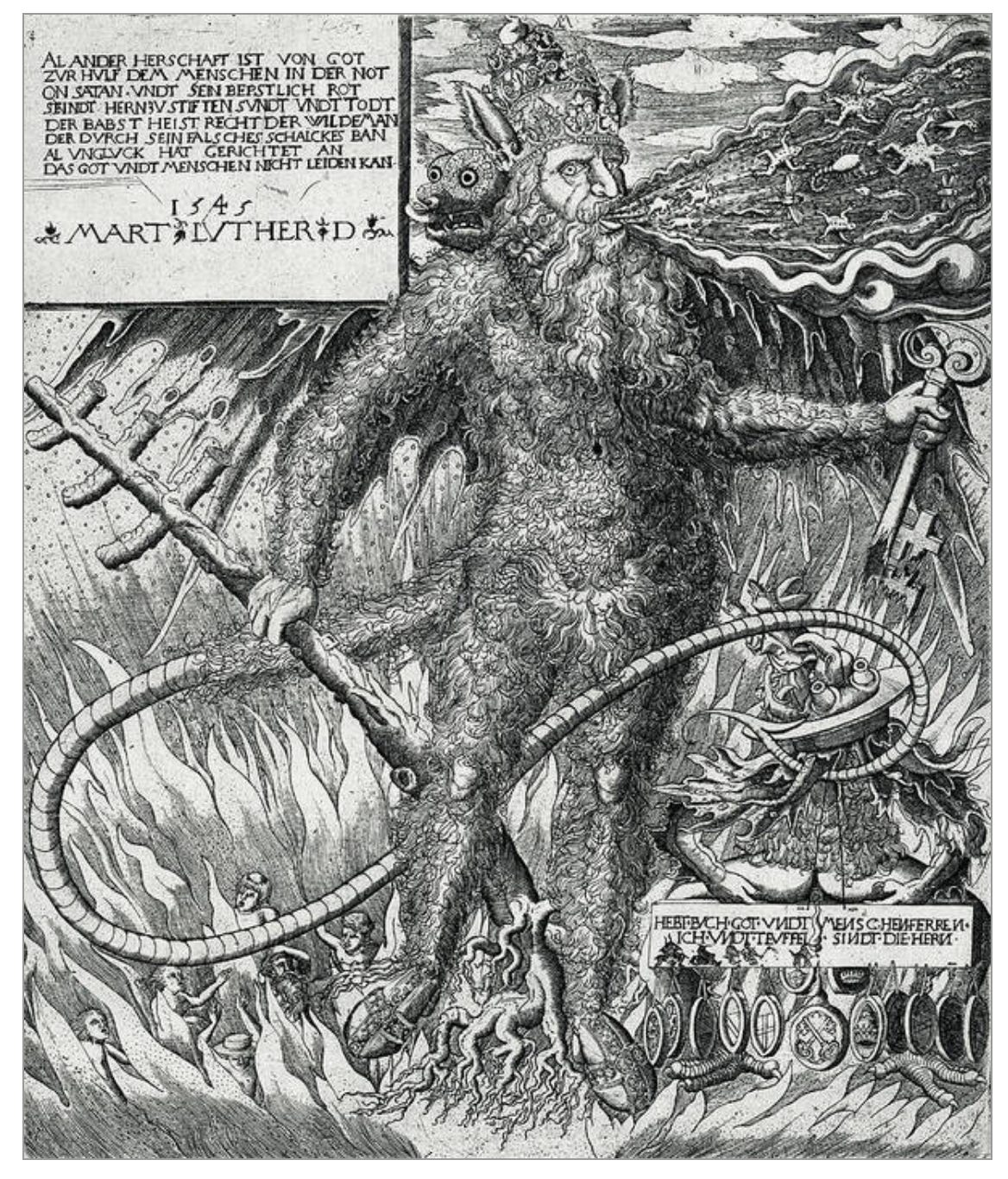


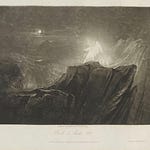
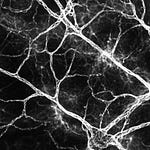
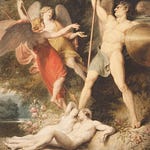
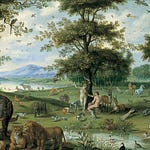

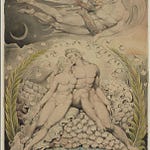
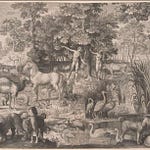
Share this post